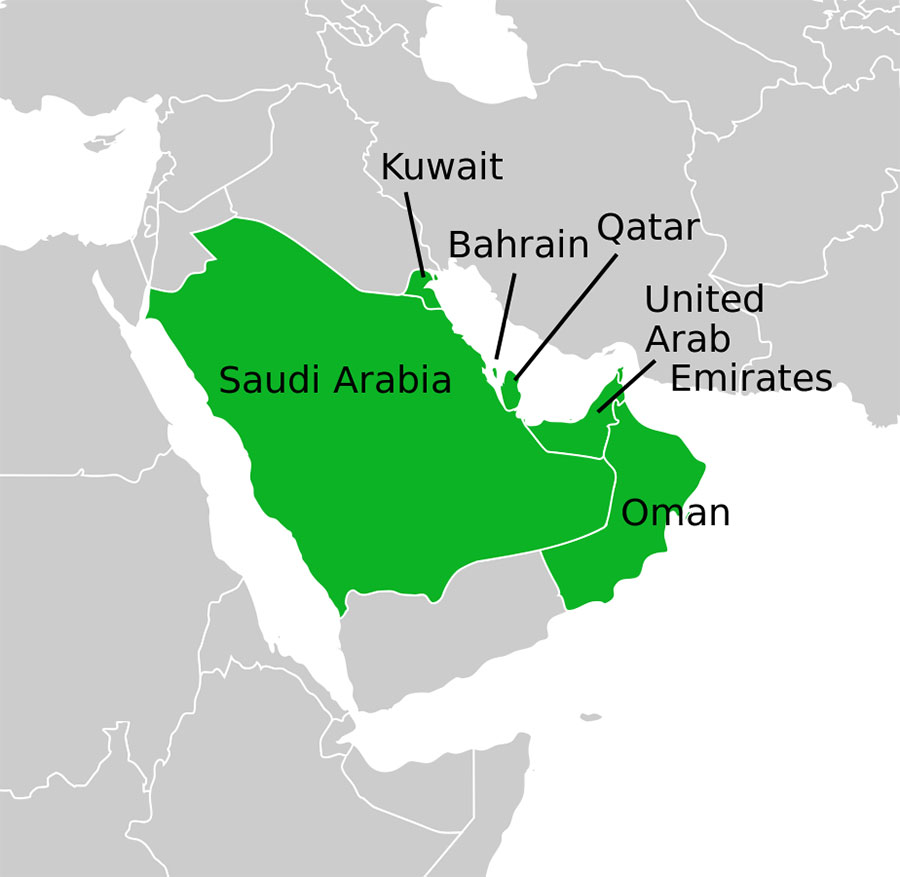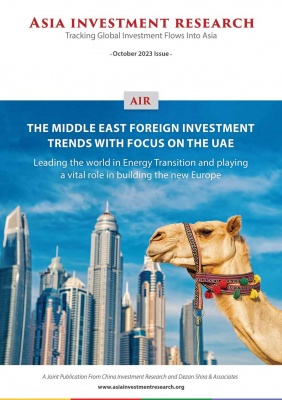The Gulf Cooperation Council Approves Unified Gulf Visa
Jassim Mohammed Al Budaiwi, the Secretary General of the Cooperation Council for the Arab States of the Gulf, (GCC) has announced that the organisation has approved the issuance of a unified GCC visa.
This allows foreigners to travel to all GCC visas on just the one issued document. The GCC includes Bahrain, Kuwait, Oman, Qatar, Saudi Arabia and the UAE. Al Budaiwai made the announcement during the 40th meeting of the GCC Interior Ministers in the Omani capital, Muscat.

The new Schengen-like visa — allowing seamless travel between members Bahrain, Kuwait, Oman, Qatar, Saudi Arabia and the United Arab Emirates — will be introduced during 2024-25. GCC Secretary-General Jasem Mohamed Albudaiwi said that the visa represents a new achievement for the six-country bloc and will underpin “continuous communication and co-ordination” between members.
“The unified Gulf tourist visa is a project that will contribute to facilitating and streamlining the movement of residents and tourists between the six GCC countries and will, undoubtedly, have a positive impact on the economic and tourist sectors,” Albudaiwi said.
The move will positively impact GCC economies and will enhance trade between them. It is also expected to boost tourism, as some would-be visitors are put off by some of the current visa restrictions of bloc member states.
Last month, UAE Economy Minister Abdullah bin Touq Al Marri said in an interview published by the WAM news agency that the visa is an integral part of the GCC 2030 tourism strategy, designed to increase the tourism sector’s contribution to member states’ gross domestic product.
The Middle East experienced a rapid recovery from the COVID-19 as far as tourism is concerned. Global tourism is not expected to fully recover until 2024, but the first quarter of this year saw the Middle East become the world’s first region where tourism arrivals returned to pre-pandemic levels, exceeding 2019 numbers by 15%, according to the United Nations World Tourism Organization. The outbreak of the Hamas-Israel war has raised concerns, however, that the trajectory of Middle East tourism might not be as rosy as thought earlier this year.
The GCC’s largest economy, Saudi Arabia, has earmarked US$1 trillion to develop its tourism sector as the desert kingdom looks to diversify away from oil.
Related Reading
- UK Progresses With ‘Trade Wins’ As GCC Trade Deal Looks Promising
- The GCC – China Free Trade Agreement – Latest Updates From Saudi Arabia
 The Middle East Foreign Investment Trends with Focus on the UAE
The Middle East Foreign Investment Trends with Focus on the UAE
About Us
Middle East Briefing is one of five regional publications under the Asia Briefing brand. It is supported by Dezan Shira & Associates, a pan-Asia, multi-disciplinary professional services firm that assists foreign investors throughout Asia, including through offices in Dubai (UAE), China, India, Vietnam, Singapore, Indonesia, Italy, Germany, and USA. We also have partner firms in Malaysia, Bangladesh, the Philippines, Thailand, and Australia.
For support with establishing a business in the Middle East, or for assistance in analyzing and entering markets elsewhere in Asia, please contact us at dubai@dezshira.com or visit us at www.dezshira.com. To subscribe for content products from the Middle East Briefing, please click here.
- Previous Article UAE-Iran 2023/24 Bilateral Trade, Status, and Prospects
- Next Article Syria and Russia: The 2023-24 Trade and Investment Dynamics


